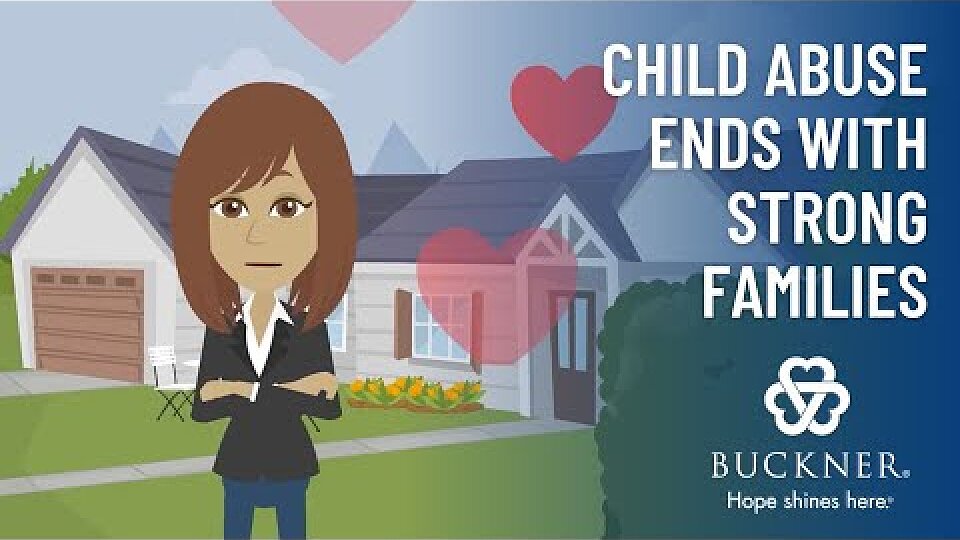Standing up for children and families for Child Abuse Prevention Month
When we talk about child abuse we often focus on the thousands of kids affected — as we should. We talk about how the majority of kids in foster care are there due to abuse or neglect and how the majority of perpetrators of child abuse are parents. We talk about the negative effects of abuse and how this trauma can affect them for years to come. We stand up for kids by praying for them, fighting for them and opening our homes as foster families.
But what is often missing is prevention. We must also stand up for children by standing by their parents.
So what does standing up for families look like?
We're not talking about advocacy for perpetrators, but instead coming alongside vulnerable families so their children never experience child abuse. It’s easy to pray for children, but it’s harder to come alongside a mom or dad and offer them support, tools and the community needed to prevent abuse.
Why is child abuse so prevalent? The obvious answer is sin. The complicated answer is years of trauma, a cycle of abuse, mental illness, a lack of tools for managing one’s own emotions and a lack of resources for dealing with past grievances.
There’s a term circling among parents these days called “mom rage.” Just about every parent has experienced a degree of this. Whether experiencing lack of sleep, overstimulated by the noise of young children or dealing with postpartum depression or anxiety, “mom rage” can easily be triggered for even the best of parents.
According to Dr. Ashurina Ream of Psyched Mommy, “Rage is like anger on steroids. It feels like it shouldn’t even be in the same category as regular emotions like mad, sad or happy. It’s often set off by little things—the dishwasher not being unloaded, the laundry piling up, the dog needing to go outside—or seemingly nothing at all.”
She goes on to say rage can look like some or all of the following:
- Snapping at your kids or partners
- Raising your voice or cursing more than usual
- Feeling irritable or always on edge
- Exploding or throwing things when angry
- Feeling powerless in managing your rage
- Avoiding important tasks that trigger your rage
- Experiencing violent thoughts and urges
It’s often accompanied by intense shame, and it’s fairly common among all families, not just vulnerable ones.
So how do we combat this uncontrollable feeling of anger?
It’s important to note this is a signal your body is giving you something isn't right. It’s time to take inventory of your life and look at where you need help. Are you eating sugar and fast food or are you eating a well-balanced, healthy diet? Are you taking time to exercise or go outside? Do you have friends or family in your life who can help you babysit, cook a meal, or even just sit and pray with you?
For many of us, we have the luxury of calling on a community to step in when we are weak but imagine a single mother working two jobs and going to school at night. She's likely doing her best to take care of her kids and to do so, she must sacrifice things like exercise and cooking nutritious meals.
She may not have a community or a healthy family who modeled positive behavior in her life. So when she's dealing with stress, her trauma can surface, and her anger can explode. And if this anger is not kept in check or dealt with, it can quickly lead to child abuse.
That’s why Buckner exists. Our Buckner Family Hope Center® programs are located in areas near to vulnerable populations. We offer classes for parents, access to family coaches, counselors and more. We walk alongside families to help prevent the heartache of separation.
How can you walk alongside families?
- Volunteer at one of our Family Hope Center locations through events or classes.
- Look for a single parent or family who may need help with meals.
- If you notice a friend or coworker who seems stressed, offer to buy them a coffee and ask how they are really doing.
- And if you see signs of possible child abuse, report abuse or neglect online, call the Texas Abuse Hotline at 1-800-252-5400 or 911 if it's an emergency.
Stand up for children by standing by their parents. Together we can make a difference.




Add a Comment